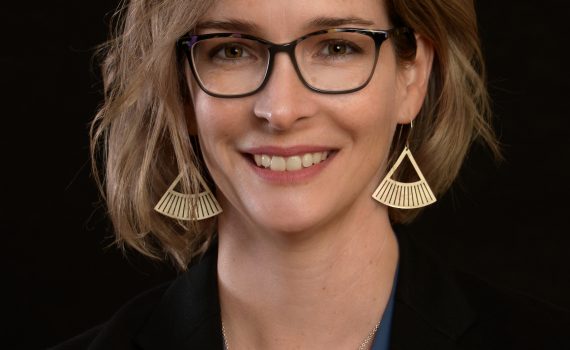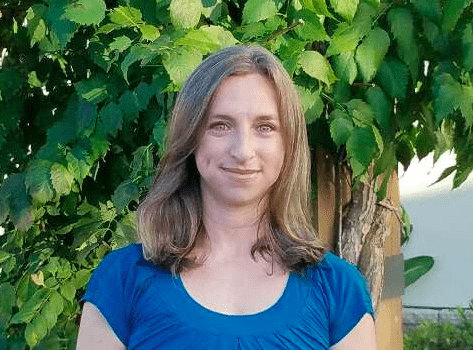
Episode 004: Alisa Bonsignore–Introverted Entrepreneur
Category:Introverted Leadership,introverts,Podcast,STC,SummitPodcast: Play in new window | Download
Subscribe: Spotify | Amazon Music | iHeartRadio | Podchaser | TuneIn | Deezer | RSS
Episode 004 Show Notes: Alisa Bonsignore
 Introduction
Introduction
Alisa Bonsignore is the principal of Clarifying Complex Ideas, a strategic communications consultancy in the Bay Area with clients around the world. Alisa Bonsignore and Ben Woelk discuss how and why she transitioned from a corporate job to becoming a solo entrepreneur and the challenges she faces as an introvert in that role. We also chat about overcoming reticence in meetings.
- Twitter: @ClearWriter
- Email: hello@clarifyingcomplexideas.com
Key concepts
- Solo entrepreneurship
- International clients
- Entry points
- Turning layoffs into opportunities
- Soul-sucking meetings
- Cultivating reliable clients
- The importance of management encouragement
- Subtext
Quotable
Once I come in the door they realize that I have these skills and I can make things very accessible for the reader…people go, “Oh, but I could use that for this project or that project.”
And for me, meetings are particularly draining, because as an introvert, being in meetings is just–it just sucks my soul, especially if it’s not a productive meeting.
I tended to be extremely quiet in meetings for many years… almost to the point of invisibility, but that didn’t mean that I didn’t have ideas.
You’ve got the dominant personalities and they’re sort of fighting it out in a way in the meeting itself. But sometimes, it’s not until later on where you get away from the noise, where it starts to make sense, what people actually meant, like… the subtext of what they’re actually asking for.
Resources or Products Mentioned in this Episode
- Society for Technical Communication
- Rochester Institute of Technology
- Clarifying Complex Ideas
- STC Intercom magazine
Links
- Follow Hope for the Introvert on Twitter
- Like my page on Facebook
- Support me on Patreon
- Get swag for Hope for the Introvert and Introverted Leadership at Zazzle
Transcript
Ben: Joining us today is Alisa Bonsignore. Alisa runs Clarifying Complex Ideas, a strategic communications consultancy in the Bay Area. Her professional mission is to create clarity and build engagement, giving people the information they need when they need it. Alisa helps companies communicate complicated topics, including policy development and sustainability communications surrounding the UN sustainable development goals (SDG), medical devices and pharmaceuticals/genomics, network security, and healthcare information technology. You can contact Alisa at hello@clarifyingcomplexideas.com or on Twitter @clearwriter
Ben: Alisa and I have been friends for several years and first met each other at a Society for Technical Communication Summit Conference in Sacramento, and I believe that was around 2012 or so. Alisa helps administer the Introverted Leadership Slack community and provided her insights for the “Introvert in the Workplace–Becoming an Influencer and Leader,” published in Intercom magazine, May-June 2018. Alisa also contributed an article, Introverted Entrepreneurship–Embracing Your Introvert Skills,” in February of 2017. if you’re attending a conference, so you can often find Alisa and me at events hanging out on the periphery and chatting. We are introverts after all!
Ben: Alisa, many introverts face challenges in their workplace. However, you’re a solo entrepreneur, so your experience maybe a bit different than that of others. What is your workplace like?
Alisa: I work from a home office, which is actually ideal for me. I know a lot of people don’t enjoy the home office environment because they feel like there are too many distractions. There’s the television, there’re other things to do, there’s the kitchen. I know a lot of people have trouble with the kitchen [laughing], but for me it’s actually ideal, because I feel like I get a lot more done because I don’t have the interruptions; I don’t have the people popping into the office needing to chat with me or requesting meetings. Most of my clients are based in Europe–well a lot of them anyway. And with the nine hour time difference that means by my 9:00 AM, most of them are gone for the day, so I do a lot of early conference calls. I get my meetings out of the way and then I have the entire day to be flexible and work at my own pace without interruption, and it’s just perfect for me.
Ben: What kind of work do you do?
Alisa: I’m primarily a writer and an editor. I provide communications consulting to companies, usually large companies (but some startups) around their communications plans, and that can range from anything from their marketing communications to more of their technical communications to a broader content strategy to policies and procedures. There’s a lot of things that that sort of fall into that. Once I come in the door they realize that I have these skills and I can make things very accessible for the reader, and then I’m sort of shuffled around from group to group where people go, “Oh, but I could use that for this project or that project.” But, a lot of what I come in the door for tends to be somewhere between technical communication and marketing. It’s more of your white papers and things like that where you need to explain really difficult technical or clinical concepts to ordinary people in plain language. And that’s usually my entry point. But, then I do a lot of things from there.
Ben: That’s interesting. So how long have you been doing the solo entrepreneur thing and what did you do previous to that?
Alisa: So I was doing it part time, sort of, the nighttime freelance writer for several years. But this full-time version of it started about 12 years ago. right after my son was born. I had been working in-house at that time, at a medical device company. It was right here in town. The commute was great. I loved my boss. I loved my team. Everything was wonderful, and I came back from maternity leave, and three days later they announced that they were shutting the entire office down and moving to Boulder, Colorado. So that pretty much put things into perspective and I said, “Okay. Maybe maybe it’s time to do the freelance thing that I’ve been talking about before.” So, that’s what kicked me out the door. And it does help when you’re starting out that you have 400 people in your building who have now scattered to the wind, because those 400 people carry your name with them to wherever they go. So, that was a really good starting point, actually. It was a bit of a kick in the butt, but it was a–It ended up being very helpful.
Ben: So what happened was you had thought about launching this and then you were…
Alisa: Well, so we had talked for years about if and when we ever had kids, that that would be a really good time to go freelance because of the flexibility and the options there, and I wouldn’t be tied down to an office where it was more difficult, right? So we talked about it, but I was in a really good situation at the time so I had no intention of quitting and moving on, because it was really working well for me, because it was a, as I said, a good group and a good manager, and I was really enjoying the situation that I was in until it wasn’t there anymore.
Ben: It’s always interesting what provides the impetus for change and, at least in my experience from many times, it doesn’t mean that we’re necessarily ready, even though we were certainly thinking about moving in that direction. So, in terms of your previous workplace, right now you’re working from home by yourself, you have a good deal of control (or at least the illusion of control) when you have conversations scheduled and things like that. What was it like for you when you were in a corporate workplace?
Alisa: So I think my corporate experience was a lot like what most communicators find in a corporate experience, which is that, as a communicator, you have several different clients internally. You’re not just typically writing for one product manager, or one engineer, or one whatever. You’ve got a lot of people who are pulling you in a lot of different directions, which means that you have a lot of meetings, and a lot of busy time that you might not necessarily be accomplishing, but you’re sucked into a lot of the time. [laughing] And for me, that’s particularly draining, because as an introvert, being in meetings is just–it just sucks my soul, especially if it’s not a productive meeting. I mean, the meetings that I have now with my clients, especially since most of them are Swedish and German, we get on the phone, we talk about what needs to be talked about. We get on, we get off, we move on with our day. It’s not the lingering, 12 people on a conference call. “Hi, who’s this?” “Who dialed in?” “Oh, well it’s Bob here.” You’re not drifting out into that sort of thing.
Alisa: It’s a much more pointed meeting and a much more relevant meeting than what I used to have, and as is the nature of any cubicle farm, when you’re in house, people just pop by, and they’ve got things they want to talk about, and they may be work related and they may not be work related, but they suck your day. [laughing] I found that I wasn’t really getting as much accomplished as I wanted to at the time, because it was–there was so much brain power going into the meetings and the time going into the meetings, and it wasn’t really giving me the time to just sort of have uninterrupted time to do what I was really supposed to be doing.
Ben: So, it sounds like there’s a bit of a cultural difference with your current meetings over the typical in-house meeting as well.
Alisa: Well, and I think too, maybe it’s–just a part of it’s cultural– with the type of culture in Sweden, Germany, but part of it too, I think, is it’s a lot easier when it’s a one-on-one call. You’re either both there or you’re both not, and when you’re there you’re not sitting around waiting for somebody else to dial in, and it’s not that waste of time with all the useless chitter-chatter for 15 minutes. It’s, we’re both on, okay, here’s what we have to cover. Boom, boom, boom. Now we’re done. Great. Have a great day.
Ben: In terms of your current entrepreneurial position, what do you find challenging as an introvert? I know based on what we’ve talked about here and talked about previously, you are able to at least somewhat structure your day. What do you find to be a challenge as an introvert?
Alisa: So I think that onboarding new clients is always a challenge, because you always have to be selling. You always have to be networking, right? So this is why I’ve done a really good job over the years of cultivating reliable clients that I know that I can go back to again and again, because I don’t want to have to do that relationship building. That’s draining to me, because it’s selling. It’s about selling myself. It’s about proving that I can do what they need to have done. That’s exhausting. It’s like job interviewing every time you do it and certainly I prefer not to do that. [laughing] So over the years I’ve done a really good job of really cultivating good people, and even within a company filtering down the people that I want to work with in that company, even if it’s a good company overall to work with, that doesn’t mean that everybody is good to work with within the company.
Alisa: I’ve definitely worked on tha t so that I’m doing less selling, which is helpful to me psychologically, but also it helps because I’m not having to do all of the administrative chasing. So I’m not having to worry about setting up the vendor as a vendor and all these different companies and I’m not worrying about as much how to–who do I contact if I don’t get paid, I already have my contacts, I already know who to reach and it makes it a lot simpler to work with at that time.
Ben: So do you pretty much do all of the, all of your business responsibilities yourself?
Alisa: Yeah, it’s all me.
Ben: So no virtual assistant or anything like that at all?
Alisa: No, no, just all me.
Ben: Alisa, you had talked about meetings and how meetings can be challenging when they’re in a corporate environment, because when you’ve got everybody catching up with everybody to see however you want is doing, but you also have the issue where you may be in a meeting with many, many people, but there’s only a small portion of it where you’re really active in the meeting. Now, for me that is multitasking time, which may or may not be a good thing. (Especially if somebody addresses something to you and you’ve been busy working on something else for half an hour.) So what else–was there anything else that you found challenging about being in a corporate meeting?
Alisa: Well, yeah, I mean especially in a lot of my roles I’ve had to deal with people who are a lot more extroverted than I am, and that means that they talk a lot. When there are people in the room who are dominating the conversation, it’s not my style to dominate the conversation. I mean, I’ll speak up when I have something that I really need to say, but I’m also not the kind of person who will typically talk over somebody else to make that happen. So if you’re in a room with sales, if you’re in a room with that manager who’s really just like loud and dominating and aggressive or whatever, it’s very hard for me to butt in and be like, “But wait, I have a thought here.” It’s not really–it’s not really my style.
Alisa: So, I tended to be extremely quiet in meetings for many years to the point where–almost to the point of invisibility, but that didn’t mean that I didn’t have ideas. I would be much more inclined after I’d had some time, we’d all met and after we leave the room, sort of like when somebody insults you, you get the great comeback later. After a meeting I walk away and 12 steps out the door, I’m like, I get it now. I know exactly what we need to do because I’ve had a few seconds to process what everybody has been saying and where everybody’s coming from, and come up with a solution that works for everybody, which might not come to me on the fly in the meeting itself.
Ben: Was this anything that your management ever mentioned to you at all? I had a conversation, which is on another episode of this podcast, with a friend whose manager actually described her-to her face-in a meeting as being a slow thinker.
Alisa: [laughing] No, nobody ever thought that I was a slow thinker to my knowledge. Nobody ever said it to me anyway, but I definitely think that there was the perception–well, I feel like there’s the perception that writers in general are quieter people. I mean we’re not expected to be keeping pace with sales in terms of our conversation and our–our loudness in our domination, right? We are–we are generally,–most writers that you work with are generally more reticent than others. So I don’t think it was completely unexpected, but in my last in-house job, my boss was like, “No, you know what you’re talking about. Get in there and just barge right in and do it!” She was much more encouraging of that–not that anybody else had been discouraging–but she was much more, “Why are you not saying something?”
Alisa: “Well, because, I’m not–I’m not going to interrupt the vice president of something or other who thinks he’s got this grand plan.” And she’s like, “No. Somebody has to interrupt him. This is nothing. This isn’t smart. What do you say? You really got to get in there and do it! Tell them what you think, and do–do what needs to be done!” And so there was much more push there from her, so she was really good for encouraging me that way as opposed to the-the negative encouragement of others. No, she was–she definitely gave me some positive reinforcement.
Ben: It’s interesting because I tend to be reticent, and not that you would believe that now either! [laughing] I tend to be reticent in meetings or at least I have in the past, but for me to feel like I’m going to interrupt this vice president, even though I know this person is wrong in what they’re doing, feels a little bit about, “Oh, look, the emperor has new clothes!” And I don’t want to be that person who points that thing out. But obviously, I’m thinking it, whether I’m–whether I’m saying it out loud or not. [Alisa laughing] So I definitely empathize with what you’re talking about in terms of being hesitant to interrupt. And even now, even as “glib” as I can be for an introvert in meetings, there’re so many times it’s like, “Oh, I should have said something about that.” “I need to talk to this person afterwards, because they didn’t come across the way they thought they did,” or, “that really might not work the way you think it’s going to,” and for whatever reason, and I’m definitely not always right, but for whatever reason, those flaws usually jump out when I hear them or especially if I read them.
Ben: So, meeting behavior can definitely be a bit of a challenge?
Alisa: Yes. Yeah, for me, a lot of what goes on in conversation–there’s–you’ve got the dominant personalities and they’re sort of fighting it out in a way in the meeting itself. But sometimes, it’s not until later on where you get away from the noise, where it starts to make sense, what people actually meant, like what was the subtext of what they’re actually asking for. They may be barking about needing X, but really, the reason why they’re barking about that, is because they’re under pressure about Y, and–“Oh, if we can address that, then X becomes less relevant. We don’t have to fight about X.” Right?
Ben: Looking forward to the second part of our conversation.
Extras
Alisa has a Twitter bot that is sometimes hysterical. https://twitter.com/alisa_ebooks
Back to the Hope for the Introvert Podcast


 Joanna Grama is a senior consultant for
Joanna Grama is a senior consultant for 

 Sara Feldman is a content experience strategist at MindTouch. We discuss her role, and what it’s like for her as a leader and influencer in the workplace and as a leader of the STC San Diego community. Topics include how she recoups energy, planning ahead for carving out recovery time, pre-charging before a grueling stretch of interacting with others, meeting strategies, and how being a leader actually helps when attending networking events.
Sara Feldman is a content experience strategist at MindTouch. We discuss her role, and what it’s like for her as a leader and influencer in the workplace and as a leader of the STC San Diego community. Topics include how she recoups energy, planning ahead for carving out recovery time, pre-charging before a grueling stretch of interacting with others, meeting strategies, and how being a leader actually helps when attending networking events.






